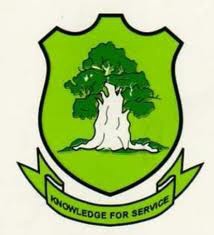The Institute for Continuing Education and Interdisciplinary Research (ICEIR) of the University for Development Studies (UDS) on Wednesday opened the ninth Harmattan School.
The Harmattan school is a platform instituted to deliberate on development issues affecting Northern Ghana and to suggest ways of solving them.
This year’s event is on the theme: “Sanitation, Health Communication and National Development”.
Papers would be delivered on, Decentralization and Environmental Sanitation, Sanitation Challenges in Northern Ghana: the role of key stakeholders, Ingestion of Plastic waste by Farm Animals in Ghana: Effects on the production of ruminants.
Other topics include, Movers of and barriers to sustainable environmental sanitation in the Northern Region of Ghana and Environmental hazards and disease trends in Northern Ghana.
Professor Gabriel Ayum Teye, Pro Vice Chancellor of UDS, who opened the school on behalf of the Vice Chancellor, Professor Haruna Yakubu, called for collective efforts to address sanitation related issues that engulfed the country.
He said Ghana’s efforts at meeting the Millennium Development Goals on Health would be eroded while the country’s social and economic development targets would be a mirage if measures to address the poor sanitation issues were not holistically tackled.
Professor Yakubu indicated that academic research on sanitation and health would help inform policy makers on best practices to reduce the huge amount of money spent on sanitation and health related problems in the country.
“As an academic and research institution, whose core mandate is to contribute to training the human resources needs of the country, there is the need to include sanitation and health communication courses at every level of our academic process”, he said.
He said good sanitation and health communication were the bedrock for any meaningful development in every society and that a healthy society was realized when there was good sanitation through effective communication from stakeholders mandated to ensure cleanliness.
He said UDS would continue to use the Harmattan School to provoke discussions on topical issues confronting the growth and development of the country and commended the government for instituting the National Sanitation Day, which would change people’s attitude towards environmental pollution.
Alhaji Limuna Mohammed-Muniru, Northern Regional Minister in a speech read on his behalf, commended authorities of UDS for the Annual Harmattan School and assured that the Northern Regional Coordinating Council would partner UDS carry out projects that would benefit the public.
He said government recognized the health hazards as a result of poor sanitation practices hence the resolve to institute every first Saturday of every month as National Sanitation Day and appealed to the academia to come out with programmes and projects that would help solve the poor sanitation practices in the country.
He appealed to all Ghanaians to make it a duty to ensure good sanitary and environmental cleanliness in their various neighbourhoods and should take part in the National Sanitation Day campaign.
Professor Fred Binka, Vice Chancellor of the University of Health and Allied Sciences advocated for imposing heavy taxes on sachet water and other plastic disposables, to help reduce the littering of the environment.
He said it was also necessary to have a “Sanitation Tax Force” in place to monitor and arrest persons who throw sachet water and other disposables on the streets.
Professor Binka said there was the need for the country to adopt a multifaceted approach to address the sanitation problems once and for all saying, “In some countries certain things such as computers are sold out with their disposable prices included”, which Ghana can also adopt.
Regional News of Thursday, 5 February 2015
Source: GNA
UDS Harmattan School opens in Tamale

Entertainment











